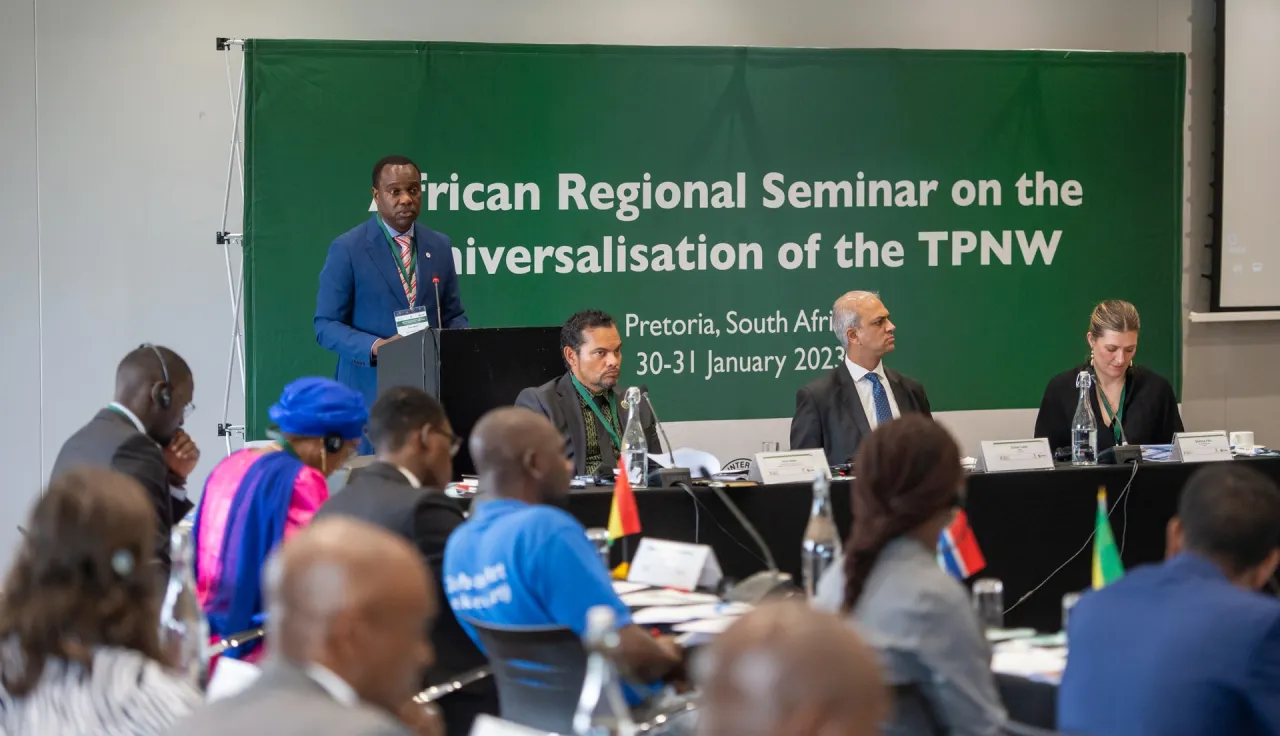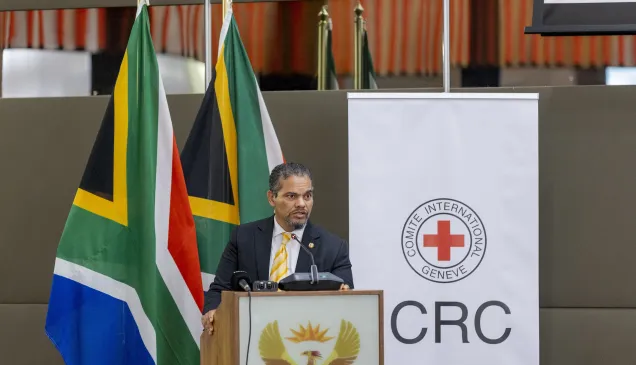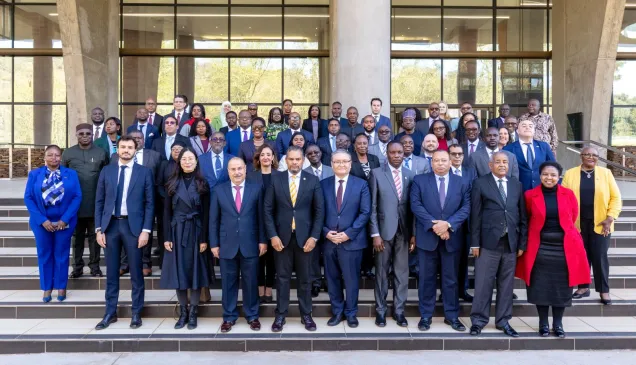South Africa is hosting a meeting of 37 countries from across the continent to discuss how to get all African states to join the Treaty on the Prohibition of Nuclear Weapons, TPNW. The meeting was opened on Monday, 30 January 2023, by the Deputy South African Minister of International Relations and Cooperation, Mr Alvin Botes. The Regional Seminar is co-hosted by the South Africa's Department of International Relations and Cooperation, the International Campaign to Abolish Nuclear Weapons (ICAN) and the International Committee of the Red Cross (ICRC) and includes participation of the representatives of 37 African States.
The seminar will take stock of the TPNW from a regional perspective and consider the need for further progress towards universalisation of the Treaty on the continent. This will entail raising awareness about the TPNW, its importance for African States, its place in the global and regional peace and security architecture as well as to highlight discussions about the risks posed by nuclear weapons, and their catastrophic humanitarian consequences. Universalisation of the TPNW maximises the authority of the Treaty, strengthens its core norms and principles and underscores the delegitimization of nuclear weapons and nuclear deterrence.
The TPNW is a landmark agreement in the history of nuclear disarmament and represents the wish of member states of the United Nations (UN) to rid the world of nuclear weapons. TPNW's intention is to further stigmatise and delegitimise nuclear weapons based on the adverse and indefensible humanitarian consequences of their use. The Treaty places an emphasis on the humanitarian consequences of the use of such weapons.
Deputy Minister Botes stressed that: "For a majority of non-nuclear armed States, especially African States, the risks of the use of nuclear weapons and the scale of the humanitarian consequences that would follow, make nuclear disarmament an urgent priority. South Africa's own experience has shown that neither the possession nor the pursuit of nuclear weapons can enhance international peace and security. The continued retention of nuclear weapons based on the perceived security interests of some states comes at the expense of the rest of humanity."
Mr Botes added "South Africa's commitment to disarmament is based on the belief that international peace and security cannot be divorced from development. South Africa continues to play a leading role in organising the implementation of the Treaty and calls upon African States to sign and ratify the TPNW at the earliest possible opportunity and thus reassert Africa's leadership in nuclear disarmament and contributing to international peace and security."
The Executive Director of ICAN, Beatrice Fihn said: "By coming to Pretoria for this meeting, the states here are reinforcing their commitment to a world without nuclear weapons and providing needed leadership on nuclear disarmament at a time when, for the first time in many years, we are faced with the very real and deeply concerning possibility of a nuclear weapon being used in conflict. African states are rightly proud of the role they played in the TPNW's negotiation and adoption. Support for the treaty in this region is universal, even if work remains to be done to bring all states on board as parties."
According to Mr Jules Amoti, Head of Pretoria Delegation of the ICRC: "Nuclear weapons are one of the biggest threats to humanity. Their catastrophic humanitarian consequences for all life on our planet are today well-known, and so are the immense risks their continued existence entails. The complete elimination of nuclear weapons is an urgent humanitarian imperative, and for all those States that are party to the Non-Proliferation Treaty, it is also a legal duty."
African States played a critical role during the working group on nuclear disarmament that culminated in the negotiation and adoption of the TPNW by the vast majority of UN Member States in July 2017. This is in accordance with the declaration of the Organisation of African Unity (OAU) as far back as 1964 for the Denuclearisation of Africa, and the establishment of the African Nuclear-Weapon-Free Zone Treaty, also known as the Pelindaba Treaty, adopted in 1997. The TPNW and the Pelindaba Treaty express the prohibition of nuclear weapons on the African continent while supporting the continued use of nuclear technologies for peaceful uses that contributes to socio-economic development.
For more information and interview requests please contact:
Rodgers Baloyi, ICRC Pretoria, tel : +27 63 688 2603, rbaloyi@icrc.org
Alistair Burnett, ICAN, tel: +44 7739 300168, alistair@icanw.org




